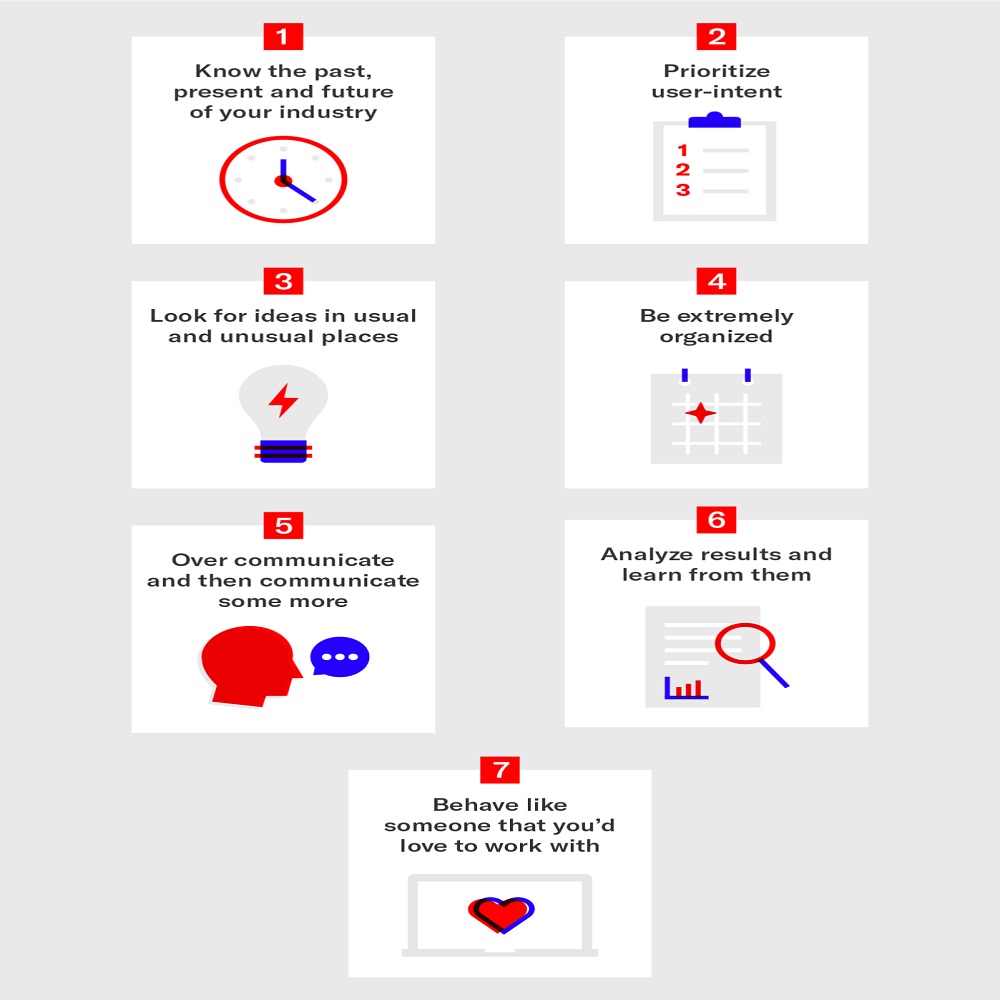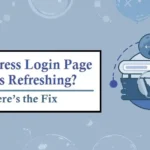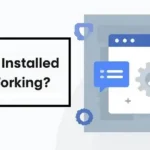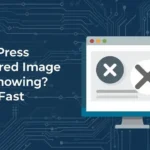How To Become A Content Creator
In this article, we will understand How To Become A Content Creator. Every internet user has witnessed their share of content failures, ranging from the blatantly insulting to the embarrassingly wrong. What, therefore, distinguishes excellent material from mediocre? That’s the content-generating crew.
Despite the digital world’s constant change, there is a method for content production. A successful piece of content requires a lot of skill and preparation.
A Content Creator: What Is It?
A content producer is responsible for conceptualizing and producing material that connects a company or organization to its potential audience.
Content development includes copywriting, design, production, and other media that provide value and establish a connection with your target audience. Successful content production is built on matching search intent and offering value (to the brand and customer).
What is the job of a content creator?
Content creators generate content across various platforms such as social media, blogs, podcasts, video platforms, case studies, white papers, infographics, and others. This, obviously, only touches the tip of the iceberg in terms of the work content creators carry out. Your responsibilities will vary greatly depending on your workplace location and audience location. Several of these activities may involve:
- Brand Analysis: Evaluation of a brand encompassing tone and voice, design style, strengths, weaknesses, competitors’ strategies, and potential content strategies with a focus on maximizing content’s return on investment.
- Content Ideation: You might need to use your creative thinking skills to come up with relevant, interesting, and original content ideas that will produce outcomes.
- Project Management: Numerous digital content creators are required to oversee the projects they are contributing to, a valuable set of skills that will be useful in various situations.
- Writing and researching: Writing includes various content formats such as catchy social media captions, lengthy blog articles, and summarizing year-long research into a brief case study.
- Design and Visuals: Excellent design or photography is essential to enhance content and align with the brand identity. Can the design of an asset greatly impact how easily it can be shared since a picture is equivalent to a thousand words, isn’t it?
- Videography: Videography has been revolutionized by platforms such as YouTube and TikTok, providing new opportunities to engage with your audience, link content to products, and showcase through video demos and reviews.
- Editing: It is an important ability that is essential for copywriting, videography, and design. Having the skill to streamline your work, identify errors or typos, and create refined final products ensures clients are satisfied and leads to more opportunities.
- SEO: For optimal exposure, web content creators should be knowledgeable about the fundamentals of SEO and include them in their works. Video SEO and image optimizations aid in content ranking, so SEO isn’t only about copy.
Promotion: After the material is produced, you should make sure it reaches as many pertinent audiences as you can. Manual link building, creating a subscriber email, PR pitches, or social media interaction are some examples of this last but crucial phase in the content process.
Who Requires a Content Producer?
Anyone who wants to have an online presence requires a content strategy and creation plan. Content creators create material for individuals, small businesses, corporations, and organizations.
Many marketing techniques are now motivated by the significance of having an online presence. In ways that were not feasible in the days of “Mad Men” marketing, great content can truly help a business connect with its customers and forge connections. Consumers may interact with companies on blogs and social media and experience the narratives they produce.
The use of strategic content is not limited to businesses. Through engagement rates, traffic, and other measures like follower count, people utilize content to strengthen their brand presence and increase ad and sponsorship revenue. A content creator might be very helpful to anybody looking to boost traffic, produce quality leads, rank for relevant keywords, or enhance the image of their company.
Where Are Jobs and Opportunities Available for Content Creators?
Content creators can typically find employment at agencies, in in-house teams, or by working as freelancers. In these sections, there are chances for jobs in design, photography, videography, and content writing. The advantages and disadvantages of each differ significantly depending on your workplace, but they should provide you with a basic understanding.
Independent Content Producer
Freelance content creation is ideal for individuals who prioritize their independence over a consistent workload and salary. Don’t be disheartened if freelancing is your preferred career path; successful freelancers can attract sufficient clients. Freelancers have the option to either complete tasks for clients or focus on building and monetizing their own media platforms, similar to social media influencers.
- Advantages: Flexibility in scheduling, diverse content options, ability to determine your pricing.
- Drawbacks: Lack of assured earnings, absence of worker perks
Content Creation done within the company.
In-house content teams are employed by a single company or a parent organization, ensuring a steady income and perks. You will probably concentrate on just one sector, but if you manage to secure a job in a sector you are passionate about, it could be very suitable.
- Advantages: Increased authority in content strategy, and enhanced teamwork with other marketing departments.
- Drawbacks: Reduced diversity of content, limited opportunities for innovation
The agency specializes in creating content.
Working for an agency allows you to work with various clients and enhance your skills while enjoying the security and perks of a regular paycheck. Some may find content agencies too fast-paced, while others excel in a dynamic setting.
- Advantages: Stable revenue, a diverse range of content, and customers
- Drawback: Quick-moving, potentially more cutthroat.
Tips on Becoming a Content Creator
Becoming a digital content creator can be achieved through various avenues. Although many agencies and in-house roles expect marketing, writing, or design degrees, as well as years of experience, there are entry-level positions available to assist in starting your career.
Freelancers can begin without much experience or formal education but must focus on expanding their portfolio and resume, while also staying updated on techniques and trends to attract higher-paying opportunities. Discovering your unique focus or area of expertise is the most effective method to progress in your career and establish a reputation within your chosen field.
Although each person’s path is unique, the following are some of the most popular methods for becoming a content creator. Explore our SiegeLearn online course on content marketing for customized lessons to kickstart or enhance your skills.
1. Learn and inform yourself.
Academic qualification or credential
Several universities have broadened their curriculum to include specializations in digital marketing and content creation. Having a clear understanding of the specific type of content creation you are interested in before enrolling in a program can be beneficial due to the diverse nature of this role.
Certain paths, such as design and production, are straightforward, whereas content writing and management may be more ambiguous. Several degrees commonly cited in job listings for content writing roles are:
- Promotion of products or services through advertising and other promotional activities.
- Communication between an organization and the public
- Industry
- The profession of reporting news and events accurately and objectively.
If you want to pursue technical writing, clients seek a combination of expertise in the field and the ability to effectively communicate that knowledge. This might entail having a background in biology paired with a technical writing certification or a collection of previously published work.
Work experiences for students
Paid and unpaid internships offer an excellent opportunity to enter the content production industry. Internships may result in permanent jobs and, at the minimum, assist in gaining experience and references for your resume.
Learned independently
The internet provides a wide array of resources and online courses to enhance your knowledge and improve your abilities. Give the Google Analytics Certification course and the Udemy: Become a Better Blogger course a try to assist you in beginning your journey.
2. Discover your area of expertise and specialized market.
Identifying your skills is crucial for freelancers to distinguish yourself from others. Do you have a specific interest in writing about a particular industry, technical SEO, content marketing, editing, or another topic?
If you’re deciding between working in-house or at an agency, your work experience can be utilized to identify your specialization, especially in the beginning stages of your career. To progress in your career and open up new doors, you need to showcase your distinct value with your specialized skills or expertise.
3. Absorb Experiences and Embrace New Challenges
This advice is very much related to discovering your niche. Be vigilant and aware of your surroundings while at work, interning, or networking. Take advantage of every opportunity that comes your way because you may end up discovering something new about content creation that catches your eye or learn practical skills that you can use elsewhere. Beyond writing and the arts, content creators have much to be thankful for in learning other skills.
- SEO strictly deals with the technical optimization of a website.
- Introduction to HTML and other basic development concepts
- Track the performance of conversions and objectives.
- Improve your ability to communicate effectively
4. Build and Sustain Your Brand
Though personal branding is effective for influencers, it’s not a monopoly of the latter. A blog, vlog, podcast, or social media account helps build credibility for your business and can lead to more business opportunities. What you recommend to your client, do the same to yourself.
- Study and discover existing knowledge
- Know what is unique to your voice, your sound, and your style.
- Niche down to your area of expertise.
- Create with one audience member in mind.
- Share content regularly
- Engage with the local population.
Now, having an updated LinkedIn profile is important, but it is also good to have a Twitter account.
5. Authentically connect within the network
Once you have your personal brand, the connections come naturally, but you still need to reach out and take advantage of networking opportunities. Joining industry conferences or virtual networking are great ways to get in touch with others. There are plenty of Facebook groups and Twitter groups you can join to connect with like-minded people.
Be sincere in your interactions with others. Falsely complimented people can easily pick up the insincerity, which they do not appreciate. So be sure that if you have something good to say about somebody, give credit where it’s due. Don’t offer a weak compliment; ask questions, identify key points, or discuss alternative strategies.
6. Keep progressing with your education
In such a rapidly changing space as content creation and digital marketing, you have to keep at it and always learn something new. Join and be aware of leading figures, and all industry-leading publications; spend time self-improving, learning something new, or discovering new techniques.
You will certainly impress your peers with ambition but even more so with expertise, while also improving your worth as an asset.
Seven Qualities and Practices of Effective Content Producers

Being an inherently enthusiastic content creator and carrying a creative head is the most important requirement, but what propels people to excel in this field are good habits created and the time one dedicates to mastering or honing the skills. One does not have to be a great writer from the start (though that does help), but if one tries, one will develop and hone the skills. Here are some best practices and some tips that make great content creators.
1. Know your industry inside and out.
Prepare to succeed by knowing a lot about one particular subject or area. Make sure to learn of the history, the current trends, and the future developments within that field. You should do this when you’re first starting to create content for a new industry. Also, in the process of investigation, you should have some areas where you already know a lot. Learn basic ideas and tendencies throughout history, and even the status of the modern situation in the field. Use instruments like Google Trends and industry news to enter new keyword trends and make your content future-oriented.
2. Be prepared with intent priority for users.
Therefore, the essence of Google’s algorithm changes lies in how it deems important for developing a great user experience. Obviously, that entails things like alt-text and mobile optimization to improve user experience, but also how you structure and write your content easily to read.
So a plan of creation or ideas conceived for a resource should be set to focus on the ultimate user, who would need information of some sort and how to fulfill their intent with the content structure, layout, and presentation. You can’t choose between SEO and user experience-they’re interconnected.
3. Seek inspiration in obvious and not-so-obvious places.
The brainstorming task often tends to be the most entertaining and most challenging simultaneously to craft content. The most common brainstorming activity would typically be drawn from ideas coming from content and strategies employed by your competitors similar to yours. Tested techniques are a safe bet to work with, but it is through innovation that content creators become unique.
A creative content producer is always on the lookout for imaginative ways of presenting information. Whether you are creating content in a ‘boring’ field or one that’s typically more exciting, you can find inspiration in the most unlikely of places. Changing the format of a resource from an entirely unrelated subject is an excellent way to stand out and create engaging content.
4. Have an extremely high level of organization
A good organization will keep surprising clients and people around you so that they will learn to trust the skills with respect to managing projects and meeting deadlines. Try different ways and find which works best for you in your particular situation. Organization is very important if you intend to coordinate and successfully produce any content or if you do multiple freelance jobs at the same time.
5. Communicate immensely and keep on communicating after that.
Practical communication ensures that business collaboration goes off without a hitch. Let’s develop the habit of talking too much, clarity in our talk, and support recommendations with data. Also let the colleagues and clients know about the deadlines, expectations on performance, and expected return on investment, amongst many others to set realistic expectations from the very onset. If any of the elements are changed, please let us know as early as possible.
6. Reflect on the results and learn from them.
Before initiating a project, what success would mean for a particular project or a specific client needs to be known. Once a project is initiated, it becomes vital to monitor its performance against the expected outcomes that have been presented. Content performance can be measured on various dimensions such as higher website traffic, conversion rate, traffic value, number of generated links, and many more.
Why do you have a great analysis if you learn nothing from it? Professional content creators analyze what works, and what fails, for which reasons, and how it can be bettered for next time. It is important to share these key takeaways with the team and with the client because it shows respect and understanding.
7. Act in ways you would respect a colleague.
Conclusion Let’s not forget the golden rule: treat others as you would want to be treated. If you are gifted but difficult to work with, don’t bank on success in a field that by necessity requires you to interface with other people. Reputations travel fast and linger longer than you expect. Always look sharp, looking polished for yourself, for the client’s brand, and your agency.
Be a source of positivity and constructive criticism when necessary. As a whole, there is not really room for large egos; remain humble because one never knows with whom he or she might be learning next. Assist in fostering an upbeat work environment, support colleagues during tough times, and celebrate their successes.
Conclusion
Being a content creator is both difficult and fulfilling. You have the opportunity to join a quickly expanding industry, generate fresh content, and facilitate access to valuable resources for individuals.
You can also read our related articles:










